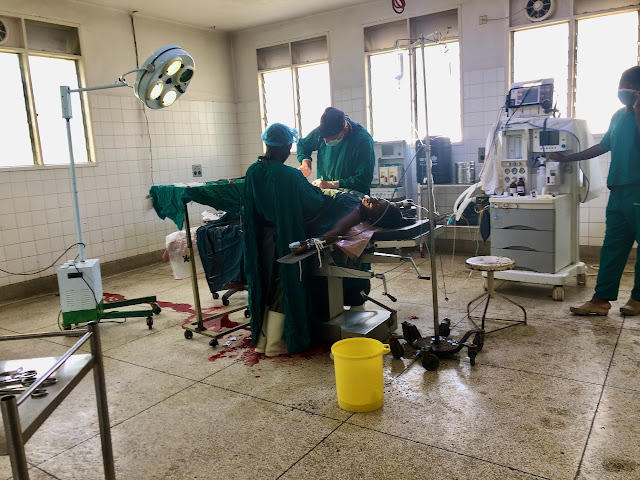In the spirit of New Year's Eve, thinking back over the best of what we've read in 2020. With no travel and no visitors and the world imploding, we spent a good bit of time reading mostly news and medical media, and the Bible (I did a chronological read-through in 2020 and Scott used the daily Anglican lectionary). But we also delved into some books. Here is a list of the ones that were most memorable.
Category one: RELEVANT TO 2020, particularly as our home country grappled with a deep history of racism, and I learned more about my own ancestry.
The Cross and the Lynching Tree (James H. Cone). Scholarly and gut-wrenching examination of the post-civil war injustice of lynching and the parallel to Jesus. (older book but I found it at a small independent book store we used as a gathering point at Luke and Abby's reception).
The Water Dancer (Ta-Nehisi Coates) I prefer all my history to be in story form, which the Bible seems to also support. This is a good novel, with a lot to say, and a touch of my favourite genre (magical realism).
The Color of Compromise (Jemar Tisby). Just excellent history of America from the perspective of the church and racism. (2019 book but it took me a year to get to it).
Forged in the Fiery Furnace: African-American Spirituality (Diana L. Hayes). This book helped me connect what I live in Africa to the Black church in America, and the writer is poetically engaging. This is a 2002 book but I just found it when she was quoted in something else I read.
Category 2: JUST PLAIN GOOD READS--novels are my jam, I admit. And they don't have to be PG, so reader beware. Besides the above (which includes 2 novels out of 5 books on race) this year I recommend . . .
Future Home of the Living God (Louise Edrich). Post-apocalyptic dystopia, I admit, is one of the genres I look for. When you get the environmental and indigenous American angle too, even better.
The Shadow King (Maaza Mengiste). An Ethiopian novelist who writes a gripping historical novel, just beautiful writing and good story telling. And based on her actual family.
Disappearing Earth (Julia Phillips). I think I thought this was a book about climate change, not sure why I borrowed it from the library. But it hooked me with the interweaving stories in Russia. Warning: dark and somewhat redemptive but evidently not redemptive enough for some I recommended it to.
The Midnight Library (Matt Haig). Just for fun, entertaining and hopeful after all the other heavy ones.
The Overstory (Richard Powers). Because I love trees. Because my daughter loves trees. Because this man can write. Because I remember some of this historical reference from my childhood. Because at least one of the characters is based on a real botanist. Because like Disappearing Earth there are multiple intersecting story lines.
The Ballad of Songbirds and Snakes (Suzanne Collins). We all know District 12 is West Virginia. I am a Hunger Games fan. The prequel is worth reading if you like the series.
A Long Petal of the Sea (Isabelle Allende) Historical novel of Chile, an area of the world and epoch of time I know nothing about. Basically I just read whatever I can by Allende.
Category 3: Spiritually beneficial books. The first two we studied as a team during the year, the second two we read as a team in the last month. The last couple were inspiring true stories.
Global Humility (Andy McCullough). Best overall book on cross-cultural missions we have found. Should be required for all workers who leave home.
Promises in the Dark: Walking with those in need without losing heart (Eric McLaughlin). The subtitle is the story of our life; Eric's writing is beautiful and he has good, solid things to say that we need to hear. Have read it a couple times and will keep doing so.
The Best Christmas Pageant Ever (Barbara Robinson) . This is a book about grace, told as a tale for kids. Just the best for reading aloud in December. Annual tradition.
Silence-And Other Surprising Invitations of Advent (Enuma Okoro). Nigerian-American writer, with a unique view of the Christmas characters, and excellent things to say that turned out to be very 2020-appropriate.
River of Fire (Helen Prejean). Heard her on a podcast and checked out her autobiography. In the tradition of contemplative activists, to which we aspire. A nun who fought for social justice because she was in touch with her humanity. She's the nun from Dead Man Walking who writes to death row inmates. True story.
Death in Mud Lick: A Coal Country Fight against the Companies that delivered the Opioid Epidemic. (Eric Eyre). Long and a bit tedious at times, but just wow, what journalism can accomplish. If you despair of the truth setting us free, read this.
Please leave your favourite reads of 2020 in the comments!




















































